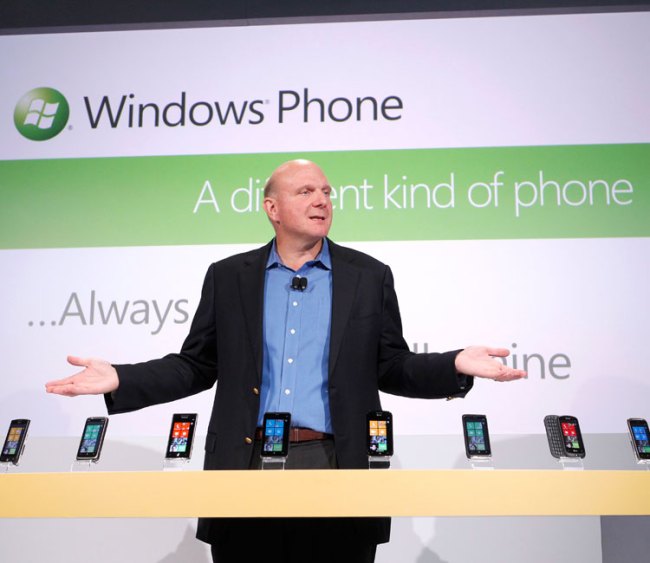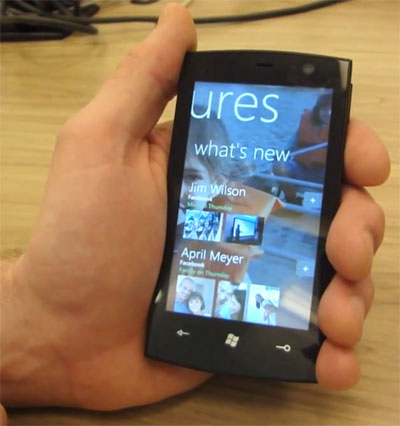
Now that Windows Phone 7 products have finally hit stores – in New Zealand at least – reviews are finally starting to trickle out. Unfortunately, my own favorite, the Dell Venue Pro, hasn’t been made available yet, and most are using the HTC HD7 or Samsung Focus for their reviews. However, some clear advantages and shortcomings have been identified, which should point out who will like this mobile OS a lot, and who won’t.
Who will love Windows Phone 7
Ironically, the folks who really like Windows Phone 7 will likely be those that liked the simplicity of the initial Palm Pilot. The device does a few things really well, and they mostly surround PDA-like functionality. Granted, the phone really prefers a Microsoft Exchange environment for full capability, but e-mail, contacts, calendar and even SharePoint support stand out ahead of the pack. If you are a Zune user, you’ll likely prefer this phone as well, because it provides the full subscription Zune experience, eliminating the need for multiple devices.
The interface is simple and intuitive for once and it gets out of the way of what you need to do, once again building on the idea that if what you want is a good phone that does a few things well, this platform may appeal to you over the others. The browser is one of the best in the market, though it, like Apple’s, doesn’t support Flash at the moment (it will likely be added early next year).
Finally, this phone loves Facebook and has the best connectivity with that service I’ve so far seen.
Who will hate Windows Phone 7

For gaming on a phone, the lack of multi-tasking can be forgiven, because it would kill phone performance, but not remembering the state the game was in, something earlier versions of Microsoft’s phone platform did well, is huge omission. I think this is a deal breaker for those who want to game on the phone.
Applications are light, and my own favorite, TweetDeck, is not yet available on the phone. This means if you are in love with a number of applications on the iPhone or Android platform, there is a good chance what you want isn’t yet available on Windows Phone 7 yet, and you’ll likely miss it a great deal.
So while this could have a gaming advantage, because it doesn’t retain state, it doesn’t, and if you love a lot of applications, particularly popular ones like TweetDeck; it may be awhile before they show up. I’d wait until they did.
Looking Forward
The first batch of Windows Phone 7 devices being reviewed are largely pre-release phones, and the full application suites aren’t available yet, which means they will likely get better over the next few weeks. However, the lack of the ability to retain state in games and other applications will probably not be corrected for some time, perhaps even not until the next version, so if that is an issue for you, you’re best off waiting until it is fixed.
On the other hand, reviewers are trending toward the unanimous opinion that this Windows Phone 7 is a contender, because of how well it does a few things, and the elegance and competitively advanced user interface. The fact is that while Microsoft didn’t pass Apple or Google, they did get within shooting distance, and started so far behind most didn’t think they could even get that far. They made the race, and enhancements this year or early next should significantly close the gap, but contending for the lead will likely have to wait until Windows Phone 8. For Microsoft, it is often the last little bit they didn’t get done that screws them up, and this time it is the inability to retain state or more effectively multi-task.
Recommendations
If you love simplicity, want an easy-to-use phone that just does the basics well, and don’t like the complexity of existing Android or Apple products, this might be a better alternative for you. On the other hand, if you are looking for something similar or more capable than an iPhone or Android product, you’d be advised to wait. In the end, it is all about knowing what you want and finding the best product to meet your own unique needs.
General advice holds for this OS: Wait for three months until all of the initial bugs are worked out, and most of you will like the second version much better than the first. My recommendation would be to wait until more apps and bug fixes are available on Windows Phone 7 before picking up a phone. Early adopters are not being rewarded with anything special at this point.
